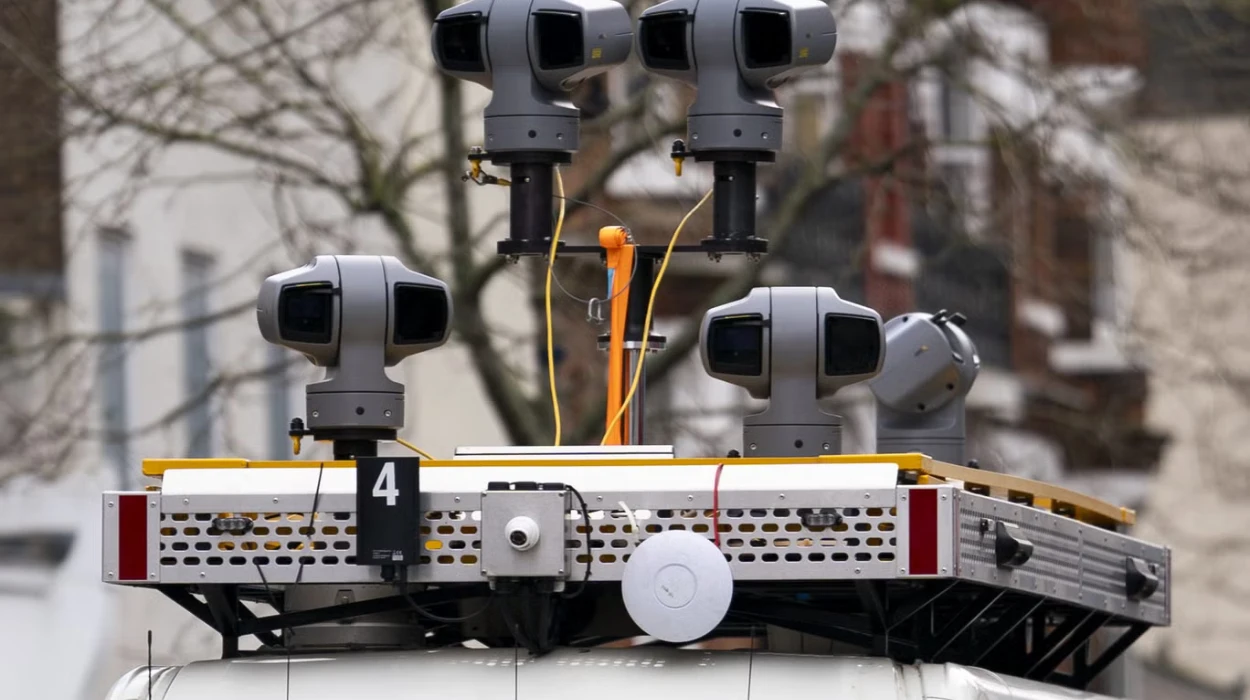UK (Parliament Politics Magazine) – Home Secretary Yvette Cooper defends expanding live facial recognition to target serious offenders, promising safeguards amid privacy fears.
As reported by The Independent, Yvette Cooper backed the government’s use of live facial recognition to tackle serious offenders, amid privacy concerns.
What did Yvette Cooper say about live facial recognition and privacy concerns?
Yvette Cooper said live facial recognition is not being used for minor crimes, and that safeguards will govern its use.
Referring to privacy concerns, she said,
“Well, the way this technology is being used is to identify people who are wanted by the court, who maybe should be returned to prison, or who have failed to appear before the court, or who have breached things like sexual harm prevention orders, so serious criminals.”
Ms Cooper stated,
“And I think being able to identify them, alongside having proper legal safeguards and a legal framework in place, because there do have to be safeguards and protections, but we also need to be able to use the technology to catch dangerous criminals and to keep communities safe.”
During an interview, when asked if she supported the technology’s use in this way, she responded,
“No, that’s not how they’ve (police in South Wales) used it.”
The home secretary added,
“They used it for targeting where there’s serious organised crime, where there are criminal gangs, but in every case that they do use it, they need to obviously have safeguards in place and we need to make sure that we’ve got a new legal framework for it to be operating under, and also that it can be used to tackle serious crimes and keep communities safe.”
Baroness Chakrabarti’s views on the use of facial recognition vans
Labour peer Baroness Shami Chakrabarti has slammed plans to deploy 10 facial recognition vans across seven police forces in England.
She warned that the technology is “incredibly intrusive” and had been “developed largely outside the law.”
Ms Chakrabarti said,
“Some would say this is yet another move towards a total surveillance society – challenges to privacy, challenges to freedom of assembly and association, and problems with race and sex discrimination because of the higher likelihood of false matches in the context of certain groups.”
She stated,
“It’s particularly odd that this has all been developed pretty much completely outside the law.”
The peer praised plans to review the law but warned that the system has so far been “a bit of a Wild West.”
What did Diana Johnson say about facial recognition criticism?
Policing minister Diana Johnson dismissed the claims, saying the facial recognition system is meant to give police the tools to protect communities.
She added,
“With the greatest of respect, that’s not what this is about. This is about giving the tools to our police officers to enable them to keep us safe.”
Which areas will see new facial recognition vans deployed?
- Greater Manchester
- West Yorkshire
- Bedfordshire
- Surrey
- Sussex
- Thames Valley
- Hampshire
What did the Home Office say about community policing and facial recognition?
The Home Office said facial recognition checks will focus only on wanted individuals, suspects, and those with court or bail conditions.
Live facial recognition has been used by police to arrest suspects in rape, domestic abuse, knife crime, and robbery cases.
According to the Home Office, each community in England and Wales has been assigned a named officer to handle reports of crimes such as anti-social behaviour.
A home office minister added,
“And the live facial recognition results in London, where it’s been used, in the past 12 months, over 580 arrests were made, and these included people who were wanted for rape, for GBH (grievous bodily harm), for robbery, for domestic abuse, and also for sex offenders who were breaching their conditions of being out in the community.”
What did the Government say about the neighbourhood policing guarantee?
Under the Neighbourhood Policing Guarantee, all police forces have committed to responding to community reports within 72 hours.
Officials said the measure will give
“the public consistent direct links to their local force, with dedicated anti-social behaviour leads and new visible patrols in town centres.”
How did Tim Morgan defend facial recognition against false arrest claims?
Chief Superintendent Tim Morgan of South Wales Police said the technology had
“never resulted in a wrongful arrest in South Wales, and there have been no false alerts for several years as the technology and our understanding have evolved.”
Key facts about facial recognition
Mobile Surveillance Units are police vans with AI-powered cameras that scan faces in real time. Live Facial Recognition compares faces against watchlists, such as wanted criminals or missing persons. If a match is found, officers receive instant alerts to investigate, helping improve public safety.
Other countries like France, Germany, Netherlands, Italy and Hungary are using facial recognition vans.


